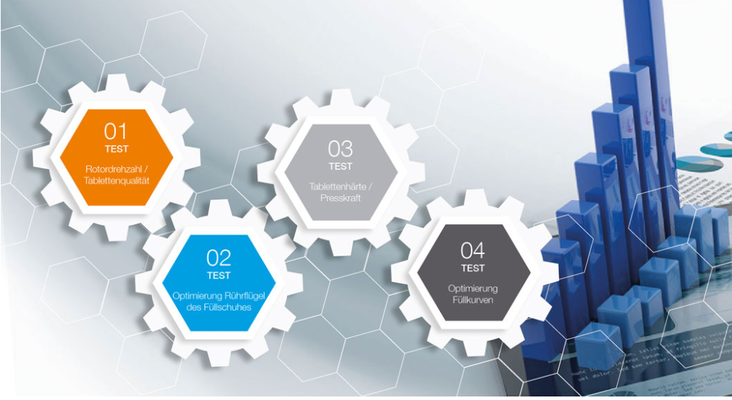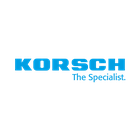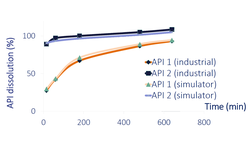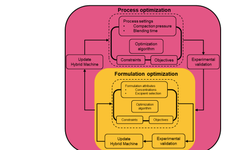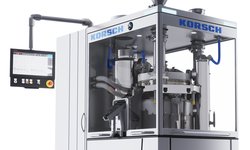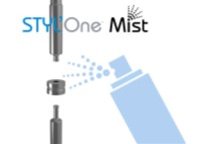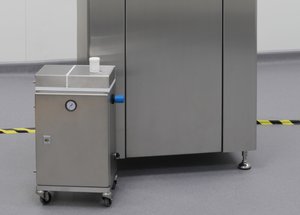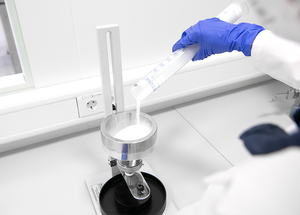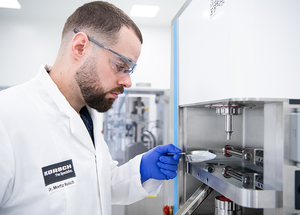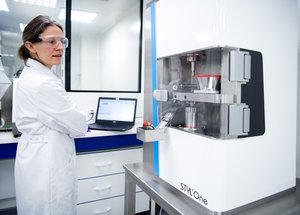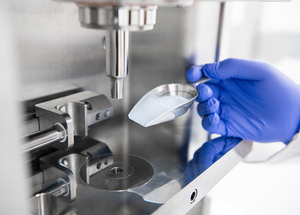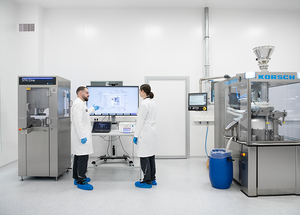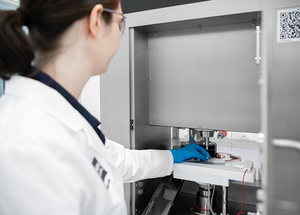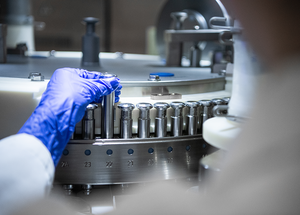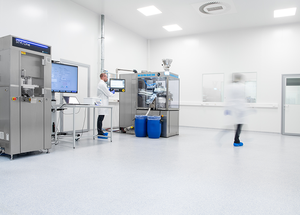As a first step on the path to systematic process optimization, KORSCH works with the customer to determine key goals and objectives. These can be increased production volumes, faster changeover times, and improved production yields. In many cases, production parameters are based on historical values and many tablet compression processes have the potential to be optimized in some way.
Maximum productivity without any loss in quality
KORSCH uses a standard process optimization matrix to evaluate the most important performance parameters, including the relationship between turret speed and tablet quality, tablet hardness and compression force, as well as feeder speed and tablet weight variation. This methodical approach is guaranteed to provide a comprehensive understanding of the process and permits the process baseline to be clearly established. Building on this foundation, KORSCH can then optimize machine settings, including fill cams, feeder paddle profiles, and press speeds, to enhance the entire process, and develop the statistical case for process improvement. A nominal gain in production performance can often be achieved, for example, through increased turret speeds and enhanced settings, however, in some cases, more subtle adjustments are required. The relationship between pre and main compression, as well as insertion depth, may be further optimized to provide an improvement to the compression process. KORSCH applies its extensive wealth of experience with a very wide range of products to execute the process optimization matrix and to fully define and achieve improvement gains.
Maximizing production yields
Production yields are always a critical metric, especially when products that contain very expensive active ingredients are involved. Overall production yields are fundamentally influenced by start-up scrap, in-process, and batch-end losses. KORSCH’s product recipe technology enables the press to be configured automatically with the required setup parameters, to eliminate start-up scrap. For in-process losses, there are optimization opportunities to change the opening in the feeder base plate, the feeder paddle configuration, as well as the dust collection pressure and airflow. All KORSCH tablet presses offer monitoring and, in many cases, control of the dust extraction parameters from the press HMI. For very expensive APIs, even a minor improvement in yield performance can translate to a compelling ROI over the course of the year.
Increasing Operational Efficiency
Analyzing and improving production uptime has a direct impact on overall operational efficiency. A wide range of effective methodologies are available to achieve this. For smaller tablet formats, the use of BB or BBS turrets with additional punch stations, can increase output by 20 – 35 % - without any modification of press speed, feeder dwell time or compression dwell time. The use of quick-change product parts and exchangeable turret – fully tooled off-line - enables streamlined changeover times and higher production capacities. Furthermore, optimization of machine settings and punch lubrication systems enables more batches to be produced consecutively, before a major cleaning is required.
Once the desired course of action has been agreed, KORSCH experts proceed with the implementation, monitoring and fine-tuning in coordination with the customer, to ensure that process optimization target gains are achieved. A combination of improvements around efficiency, output, product quality and yields can rapidly pay dividends – without involving investment in new machinery or facilities. That is why KORSCH customers benefit not just from high-performance equipment, but also from end-to-end process support and expertise that deliver optimum tableting processes.
The author


